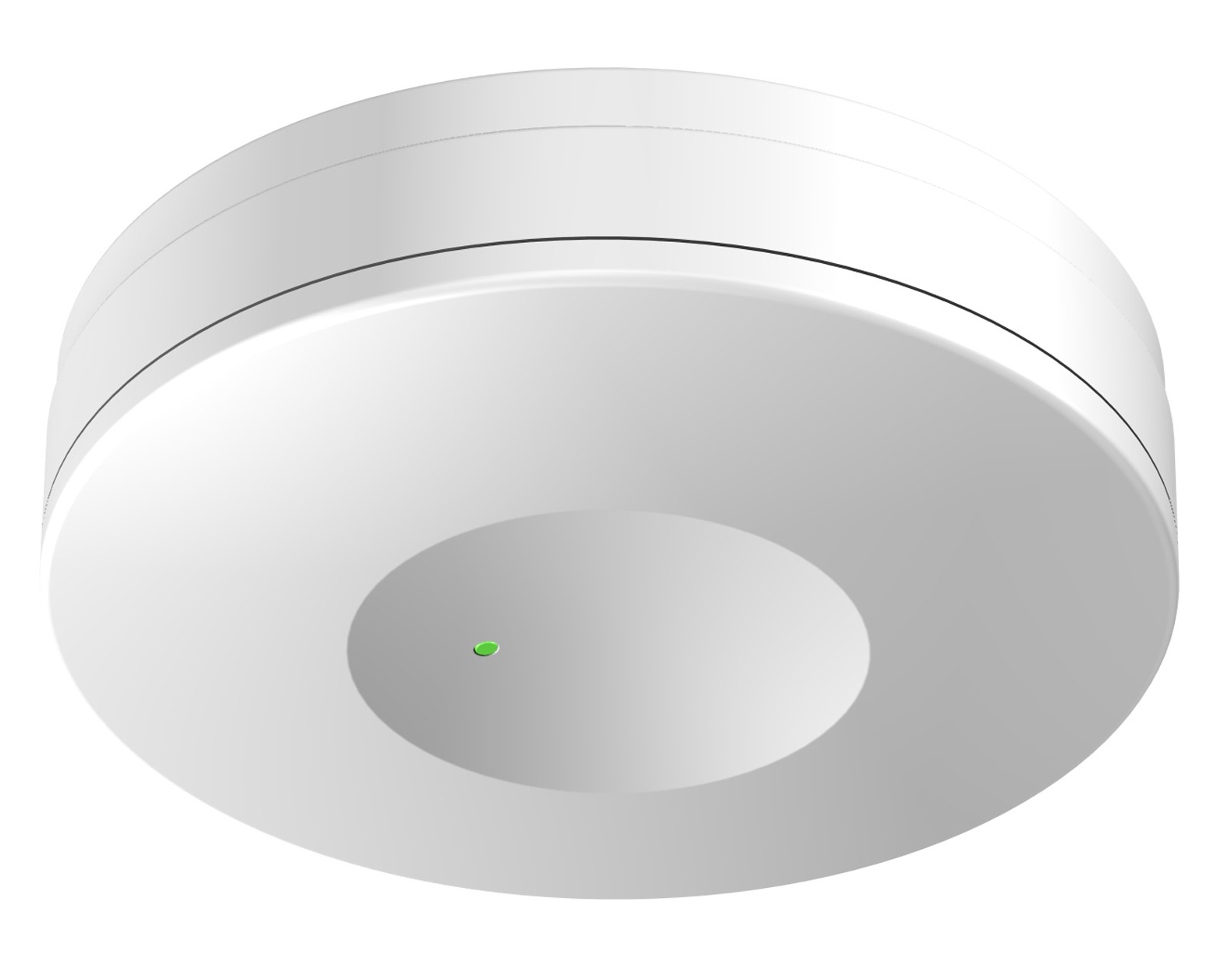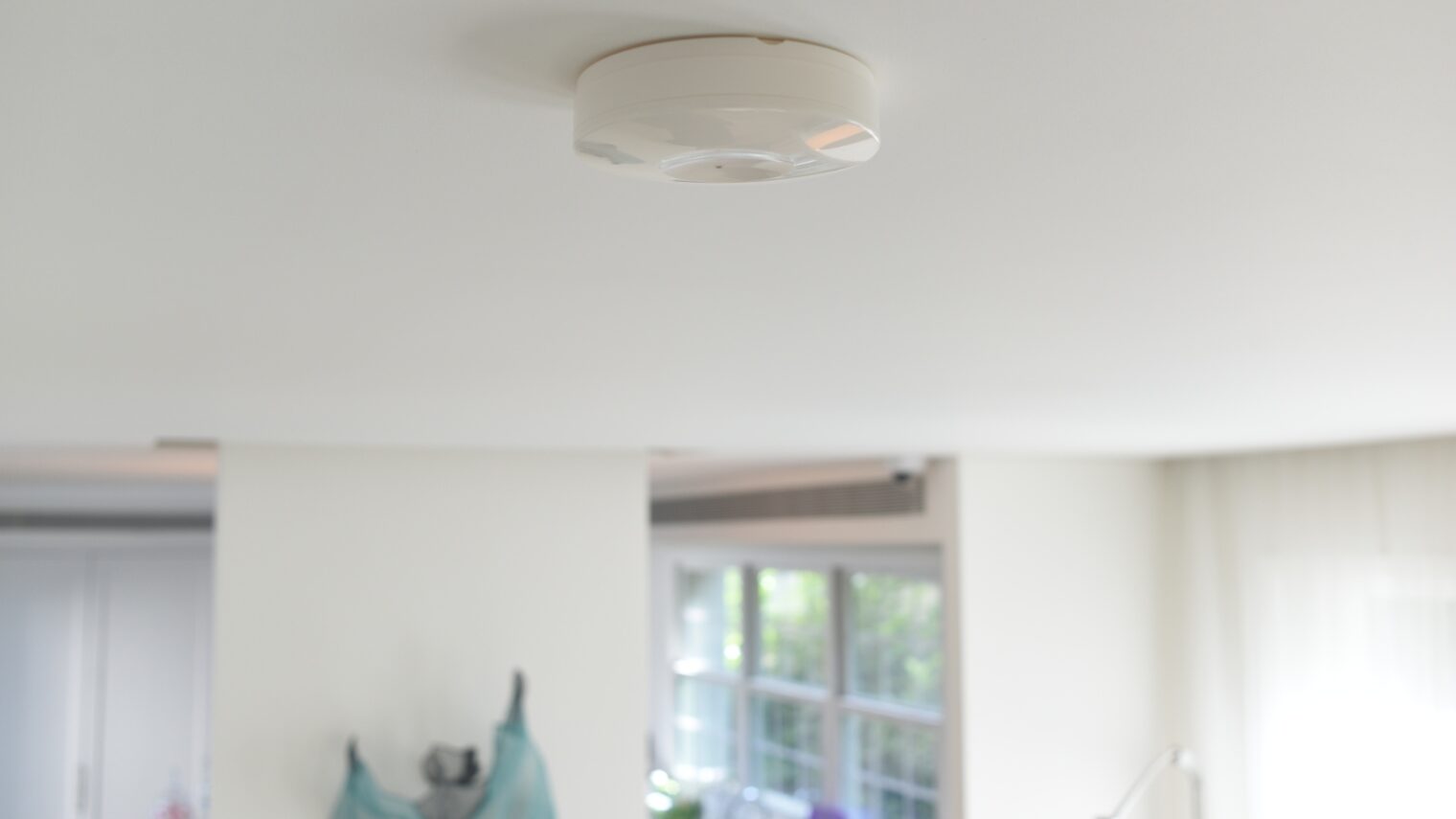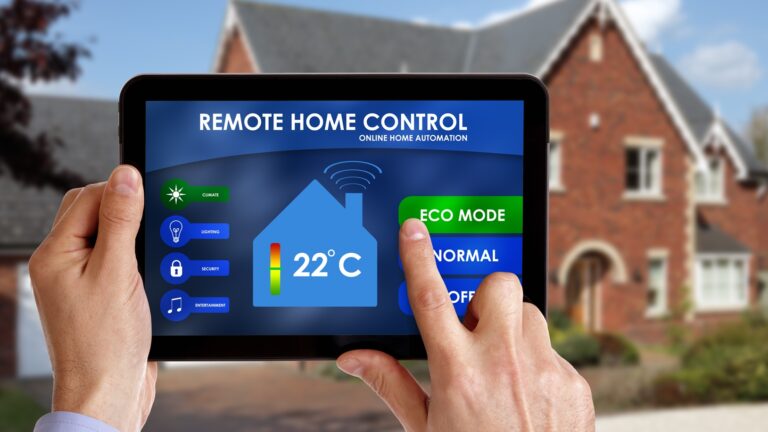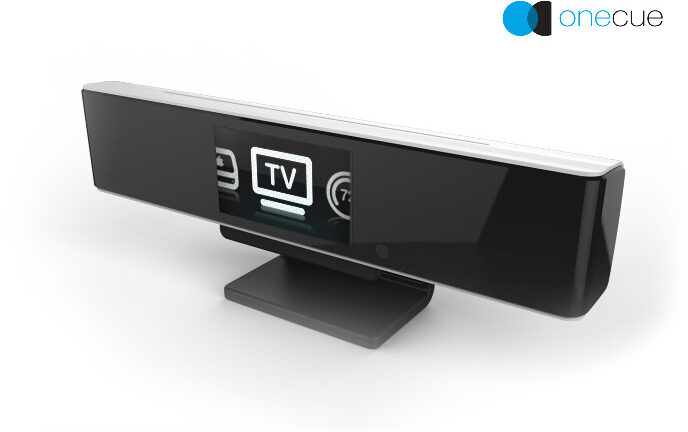New home construction is getting smarter. “To sell a property today without smart-home functionality inside is pretty much impossible,” says Oren Kotlicki, founder and CEO of Intellithings, an Israeli startup that has developed a new kind of smart-home super controller.
Smart-home technology refers to devices such as programmable light bulbs that turn on and off according to a pre-set schedule, smart thermostats that cool or heat the house only when you’re heading home, and smart speakers that set the mood by playing your favorite tunes.
What they’ve all been missing so far: personalization.
“I might prefer the room be heated to a certain temperature while my wife prefers it cooler,” Kotlicki tells ISRAEL21c. “When I enter the kitchen, I might want my Sonos speaker to play the news while my wife prefers her playlist on Apple Music.”
Intellithings’ just-released RoomMe occupancy sensor system determines who’s entered a room so it can adjust any smart devices for that person’s preferences automatically; there’s no need to open a “remote control” app on your mobile device to turn on the lights or bark a voice command such as “play the Beatles” to your Amazon Echo.
“We did a market survey in 2015 asking people with smart-home devices what features they didn’t have,” Kotlicki says. “The number one request was for devices that do things on their own. We designed RoomMe because modern smart homes aren’t all that clever. We still have to point or talk to control IoT (Internet of Things) devices.”
RoomMe, which appears similar to a smoke detector, creates a virtual Bluetooth “curtain” at the entrance to a room. When you enter with your smartphone (yes, you have to carry your phone around the house with you), RoomMe identifies you, accesses your settings and automatically adjusts the lights, thermostat and other smart devices in the space.
You can program RoomMe to do different things depending on the time of the day. For example, “When I enter the room on Sunday between 5:00 pm and 7:00 pm, set the light to cool white and play 106.5 FM.” Once you’ve set it up, the system operates entirely hands- and voice-free.
If a second person enters the room and you subsequently leave, RoomMe switches seamlessly to the settings of the new occupant.

You can set “priority levels” to determine who keeps control when there are multiple people in the same space. (RoomMe can pair with up to 16 individual users.) Parents are given priority over children by default in public spaces, although a child can be designated the “master” of his or her own room.
While you’ll need a separate RoomMe sensor for every room you want to make smart, the set-up is simple, especially compared with traditional Bluetooth beacon solutions, where every space needs at least three devices so the phone can triangulate the signal strength.
RoomMe won a CES 2019 Innovation Award in the Smart Home category. Watch RoomMe in action from the 2019 CES show in Las Vegas.
Intellithings began shipping RoomMe in May. The company has a two-pronged business model: consumer sales, starting at $124 for a starter kit of two RoomMe sensors with each additional sensor selling for $69; and a business-to-business approach where Intellithings licenses its technology to third-party manufacturers to include in their own devices.
Made in Israel

Kotlicki has been working with wireless technologies for much of his career. He was head of product management for 12 years at Visonic, which manufactures wireless security systems and motion detectors.
Visonic, founded by Kotlicki’s father in 1973 and later acquired by security and power solutions leader Tyco in 2011, also sells a real-time location system for tracking objects and people within a contained area. That gave the younger Kotlicki the idea for starting a company of his own in 2014.
Tel Aviv-based Intellithings is family funded and has just three people on staff full-time. The RoomMe device is manufactured and shipped from Israel.
In an age when the potential hacking of IoT devices has become a real concern, what’s to stop a malicious agent from getting into your home and turning off the power, cranking up the heat or – even worse – blasting Beyoncé instead of Beethoven?
While RoomMe interacts with other smart devices, it is not connected to the Internet. “All the automation rules for RoomMe run on the phone, not in the cloud,” Kotlicki explains.
Nor does RoomMe know who you are. It just knows when a particular phone with particular rules has entered a room.
Intellithings takes privacy seriously. Unlike Amazon, which keeps an audio log of what you tell Alexa-powered devices (Amazon says that’s exclusively for improving its artificial intelligence software and that individuals are not identified), RoomMe doesn’t even have a microphone.
“We’re not listening to anyone,” Kotlicki stresses. “We don’t make any use of your voice or video.”
RoomMe is currently compatible with Nest and Ecobee thermostats, a variety of Philips Hue and LIFX lights, and the Sonos PLAY:1 and Bose SoundTouch 10 smart speakers. More will come as the Intellithings team adds new integration code.
While there is no direct competition for now, companies such as Amazon, Apple, Google or Microsoft conceivably could introduce similar products.
Kotlicki says bring it on. “Being the only one offering such a solution isn’t healthy,” he says. To be safe, Intellithings has a patent on its combination of sensors and mobile app controls.
Now, that’s a smart response.
For more information, click here
















